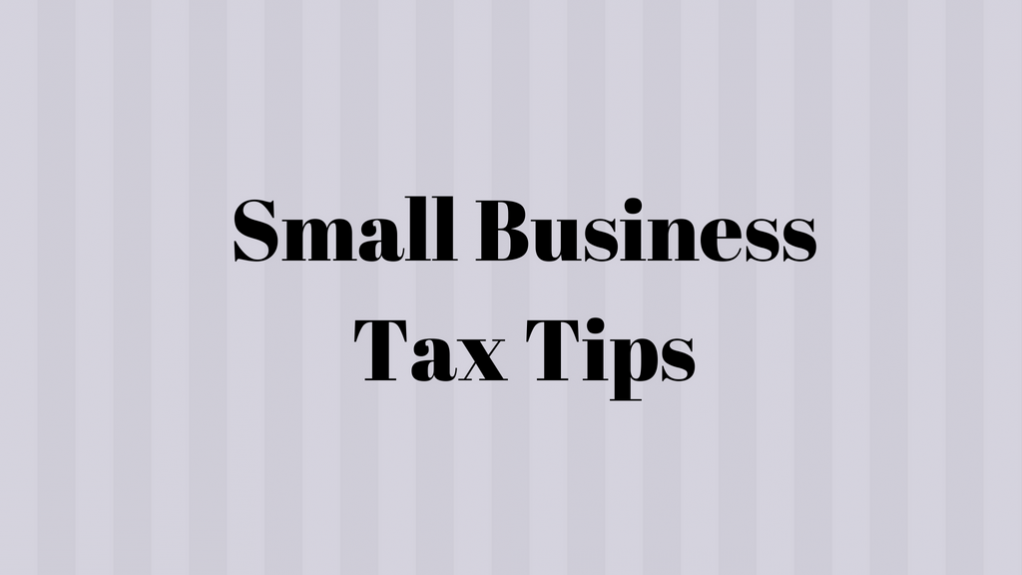While the end of the year is stressful for most people, it can be especially so for small business owners. When you’re in charge of a company’s spending, taxes, and growth, it can be difficult to close out the year strong and put your business in a financially stable position for the next year.
For most business owners, small or large, the thought of planning and preparing taxes can seem overwhelming, but the fact is, every business has to file taxes.
To avoid closing out 2017 on the wrong note, make sure you take the necessary steps needed to prepare your small business for tax season. Below are five simple tax tips that can help all small businesses prepare for the new year.
Start Tax Planning Early
The most important step you can do as a small business owner preparing for tax season is to plan ahead. The sooner you start planning and preparing your business taxes, the better off you’ll be when it comes time to file.
The last thing you want is to wait too long and leave yourself scrambling when the tax deadline rolls around in April. Procrastinating can create more stress, lead to more paperwork errors, and could possibly cause you to miss out on important tax deductions, which could cost you money.
Good business practices, as it relates to early tax preparation, includes:
- Keeping accurate financial records throughout the year
- Working with a CPA that specializes in small business taxes
- Making smart investments and fiscally responsible business decisions
Find Opportunities for Deductions
There are dozens of different tax deductions available to small business owners. You should strategically look for deduction opportunities that are associated with your business.
Some of the most popular business deductions include areas like:
- Transportation and automobile expenses
- Home office deductions
- Health insurance costs
- General equipment costs
- Education expenses
While there are several deductions that you should claim, make sure to only claim those directly related to your business operations. If you attempt to include personal expenditures like dining or entertainment into your business deductions, you run the risk of triggering an IRS audit and subsequent fines and penalties.
Migrate to Digital
If you want to vastly improve your tax planning, you should consider moving your financial tracking to an entirely digital format. Migrating paper records and bookkeeping to a digital ledger will make your life much easier come tax season.
The old record-keeping format is outdated and subject to many human errors. However, maintaining your financial data in a digital medium allows you to quickly update records and adjust historical data, while also building logic to track anomalies and trends.
In addition to digital bookkeeping, you can find a variety of other financial services in a digital format like tax preparation, invoicing, budgeting, and forecasting. Migrating digitally for your finances as a small business may seem overwhelming, but it will dramatically improve your efficiency and help you save time and money on your tax returns.
Spend Wisely
The end of a calendar year often brings about many budget dumps as businesses look to use up what is left of their previous year’s budget. While this can create a lot of opportunities, it’s important to not spend recklessly.
Assess your financials and create a strategy that best utilizes what reserves you have remaining. Think about the tax implications of your spending and make strategic decisions that are most beneficial to your business.
For instance, with tax filing right around the corner, you may want to defer income into the next calendar year or accelerate expenses to fluctuate your finances into a more favorable tax position. This could include pushing a large purchase order or contract into January or buying new equipment or attending a trade show before the end of December.
Depending on how profitable you want your business to look for tax purposes, you can take steps to move your financials into a beneficial range by spending wisely.
Understand the Required Tax Forms
There are many different tax forms out there, and it’s crucial that you know which ones are required, optional, and not required for your small business. Your tax responsibilities will often depend on your business designation (LLC, Corporation, S Corporation, etc.), the number of employees you have, the ownership structure, and way in which you operate.
For instance, if you paid a contractor more than $600 during the year, you’ll need to file a 1099-MISC. Because the required tax forms for small business owners and their employees can be confusing, it may be a good idea to contact a local Tax Firm to help you avoid any mistakes.
Tax season can be incredibly intimidating for small business owners, but with the right preparation and planning, you can set yourself up for a hassle-free tax experience, and start the next year in a strong financial position. Follow these tips to maximize your return and avoid common small business tax pitfalls.
If you want to learn more about tax planning and preparation, then contact the Tampa CPA Firm, Rivero, Gordimer & Company, today at (813) 875-7774.




